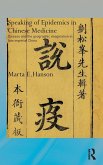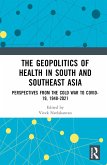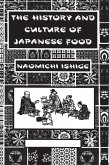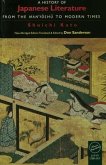Science, Technology, and Medicine in the Modern Japanese Empire
Herausgeber: Wittner, David G; Brown, Philip C
Schade – dieser Artikel ist leider ausverkauft. Sobald wir wissen, ob und wann der Artikel wieder verfügbar ist, informieren wir Sie an dieser Stelle.
Science, Technology, and Medicine in the Modern Japanese Empire
Herausgeber: Wittner, David G; Brown, Philip C
- Gebundenes Buch
- Merkliste
- Auf die Merkliste
- Bewerten Bewerten
- Teilen
- Produkt teilen
- Produkterinnerung
- Produkterinnerung
This book explores the ways in which scientists, engineers and physicians worked directly and indirectly to support the creation of a new Japanese empire, focussing on the eve of World War I and linking their efforts to later post-war developments.
Andere Kunden interessierten sich auch für
![Speaking of Epidemics in Chinese Medicine Speaking of Epidemics in Chinese Medicine]() Marta HansonSpeaking of Epidemics in Chinese Medicine209,99 €
Marta HansonSpeaking of Epidemics in Chinese Medicine209,99 €![The Geopolitics of Health in South and Southeast Asia The Geopolitics of Health in South and Southeast Asia]() The Geopolitics of Health in South and Southeast Asia174,99 €
The Geopolitics of Health in South and Southeast Asia174,99 €![The History and Culture of Japanese Food The History and Culture of Japanese Food]() IshigeThe History and Culture of Japanese Food197,99 €
IshigeThe History and Culture of Japanese Food197,99 €![Rethinking Japanese Studies Rethinking Japanese Studies]() Rethinking Japanese Studies197,99 €
Rethinking Japanese Studies197,99 €![A History of Japanese Literature A History of Japanese Literature]() Shuichi KatoA History of Japanese Literature197,99 €
Shuichi KatoA History of Japanese Literature197,99 €![Japanese Capitals in Historical Perspective Japanese Capitals in Historical Perspective]() Nicolas Fiévé / Paul Waley (eds.)Japanese Capitals in Historical Perspective197,99 €
Nicolas Fiévé / Paul Waley (eds.)Japanese Capitals in Historical Perspective197,99 €![Transitions to Modernity in Taiwan Transitions to Modernity in Taiwan]() Niki AlsfordTransitions to Modernity in Taiwan190,99 €
Niki AlsfordTransitions to Modernity in Taiwan190,99 €-
-
This book explores the ways in which scientists, engineers and physicians worked directly and indirectly to support the creation of a new Japanese empire, focussing on the eve of World War I and linking their efforts to later post-war developments.
Produktdetails
- Produktdetails
- Verlag: Taylor & Francis
- Seitenzahl: 290
- Erscheinungstermin: 4. April 2016
- Englisch
- Abmessung: 234mm x 157mm x 23mm
- Gewicht: 590g
- ISBN-13: 9781138905337
- ISBN-10: 113890533X
- Artikelnr.: 43025961
- Herstellerkennzeichnung
- Libri GmbH
- Europaallee 1
- 36244 Bad Hersfeld
- gpsr@libri.de
- Verlag: Taylor & Francis
- Seitenzahl: 290
- Erscheinungstermin: 4. April 2016
- Englisch
- Abmessung: 234mm x 157mm x 23mm
- Gewicht: 590g
- ISBN-13: 9781138905337
- ISBN-10: 113890533X
- Artikelnr.: 43025961
- Herstellerkennzeichnung
- Libri GmbH
- Europaallee 1
- 36244 Bad Hersfeld
- gpsr@libri.de
David G. Wittner is a professor of East Asian history and Director of the Center for Historical Research at Utica College, USA. Philip C. Brown is a professor at the Ohio State University, USA, specializing in early modern and modern Japanese history.
Introduction Part I: Science, Technology and Industry in the Creation of a New Japan 1 "Coke, Christ, and the Japanese Empire" 2 Academia-Industry Relations: Interpreting the Role of Nagai Nagayoshi in the Development of New Businesses in the Meiji Period and Beyond 3 An Emperor's Chemist at War and in Peacetime: Sakurai J
ji during the Russo-Japanese and First World Wars Part II: State, Experts and Imperial Medical Policy 4 Cholera, Buddhism, and Public Health: The Story of an Ephemeral Chimera in Meiji Japan 5 Freedom of the Press during the Siberian Intervention: The Taisho Democracy and the Influenza Pandemic of 1918 6 The Politics of Manic Depression in the Japanese Empire 7 A Colony or A Sanitarium? : A Comparative History of Segregation Politics of Hansen's disease in Modern Japan 8 "The Are Not Humans": Responses to H
j
Tamio and Patient Writing Part III: Medicine, Race, and Empire 9 Dr. Baelz's Mongolian Spot: The Contribution of German Medicine to the Racial Discourse in Meiji Japan 10 When Precision Obscures: Disease Categories Related to Cholera during the Sino-Japanese War (1894-1895) 11 Kamp
in Wartime Sino-Japanese Relations: The Association of East Asian Medicine and the Search for a Tripartite Medical Partnership Part IV: Scientific Weapons and the Transformation of Pacific War Aims 12 The Question of Research in Pre-WWII Japanese Physics 13 Architects of ABC Weapons for the Japanese Empire: microbiologists and theoretical physicists 14 The Science of Population and Birth Control in Postwar Japan Afterword "Is There Anything Unique About Modern Japanese Science?"
ji during the Russo-Japanese and First World Wars Part II: State, Experts and Imperial Medical Policy 4 Cholera, Buddhism, and Public Health: The Story of an Ephemeral Chimera in Meiji Japan 5 Freedom of the Press during the Siberian Intervention: The Taisho Democracy and the Influenza Pandemic of 1918 6 The Politics of Manic Depression in the Japanese Empire 7 A Colony or A Sanitarium? : A Comparative History of Segregation Politics of Hansen's disease in Modern Japan 8 "The Are Not Humans": Responses to H
j
Tamio and Patient Writing Part III: Medicine, Race, and Empire 9 Dr. Baelz's Mongolian Spot: The Contribution of German Medicine to the Racial Discourse in Meiji Japan 10 When Precision Obscures: Disease Categories Related to Cholera during the Sino-Japanese War (1894-1895) 11 Kamp
in Wartime Sino-Japanese Relations: The Association of East Asian Medicine and the Search for a Tripartite Medical Partnership Part IV: Scientific Weapons and the Transformation of Pacific War Aims 12 The Question of Research in Pre-WWII Japanese Physics 13 Architects of ABC Weapons for the Japanese Empire: microbiologists and theoretical physicists 14 The Science of Population and Birth Control in Postwar Japan Afterword "Is There Anything Unique About Modern Japanese Science?"
Introduction Part I: Science, Technology and Industry in the Creation of a New Japan 1 "Coke, Christ, and the Japanese Empire" 2 Academia-Industry Relations: Interpreting the Role of Nagai Nagayoshi in the Development of New Businesses in the Meiji Period and Beyond 3 An Emperor's Chemist at War and in Peacetime: Sakurai J
ji during the Russo-Japanese and First World Wars Part II: State, Experts and Imperial Medical Policy 4 Cholera, Buddhism, and Public Health: The Story of an Ephemeral Chimera in Meiji Japan 5 Freedom of the Press during the Siberian Intervention: The Taisho Democracy and the Influenza Pandemic of 1918 6 The Politics of Manic Depression in the Japanese Empire 7 A Colony or A Sanitarium? : A Comparative History of Segregation Politics of Hansen's disease in Modern Japan 8 "The Are Not Humans": Responses to H
j
Tamio and Patient Writing Part III: Medicine, Race, and Empire 9 Dr. Baelz's Mongolian Spot: The Contribution of German Medicine to the Racial Discourse in Meiji Japan 10 When Precision Obscures: Disease Categories Related to Cholera during the Sino-Japanese War (1894-1895) 11 Kamp
in Wartime Sino-Japanese Relations: The Association of East Asian Medicine and the Search for a Tripartite Medical Partnership Part IV: Scientific Weapons and the Transformation of Pacific War Aims 12 The Question of Research in Pre-WWII Japanese Physics 13 Architects of ABC Weapons for the Japanese Empire: microbiologists and theoretical physicists 14 The Science of Population and Birth Control in Postwar Japan Afterword "Is There Anything Unique About Modern Japanese Science?"
ji during the Russo-Japanese and First World Wars Part II: State, Experts and Imperial Medical Policy 4 Cholera, Buddhism, and Public Health: The Story of an Ephemeral Chimera in Meiji Japan 5 Freedom of the Press during the Siberian Intervention: The Taisho Democracy and the Influenza Pandemic of 1918 6 The Politics of Manic Depression in the Japanese Empire 7 A Colony or A Sanitarium? : A Comparative History of Segregation Politics of Hansen's disease in Modern Japan 8 "The Are Not Humans": Responses to H
j
Tamio and Patient Writing Part III: Medicine, Race, and Empire 9 Dr. Baelz's Mongolian Spot: The Contribution of German Medicine to the Racial Discourse in Meiji Japan 10 When Precision Obscures: Disease Categories Related to Cholera during the Sino-Japanese War (1894-1895) 11 Kamp
in Wartime Sino-Japanese Relations: The Association of East Asian Medicine and the Search for a Tripartite Medical Partnership Part IV: Scientific Weapons and the Transformation of Pacific War Aims 12 The Question of Research in Pre-WWII Japanese Physics 13 Architects of ABC Weapons for the Japanese Empire: microbiologists and theoretical physicists 14 The Science of Population and Birth Control in Postwar Japan Afterword "Is There Anything Unique About Modern Japanese Science?"








